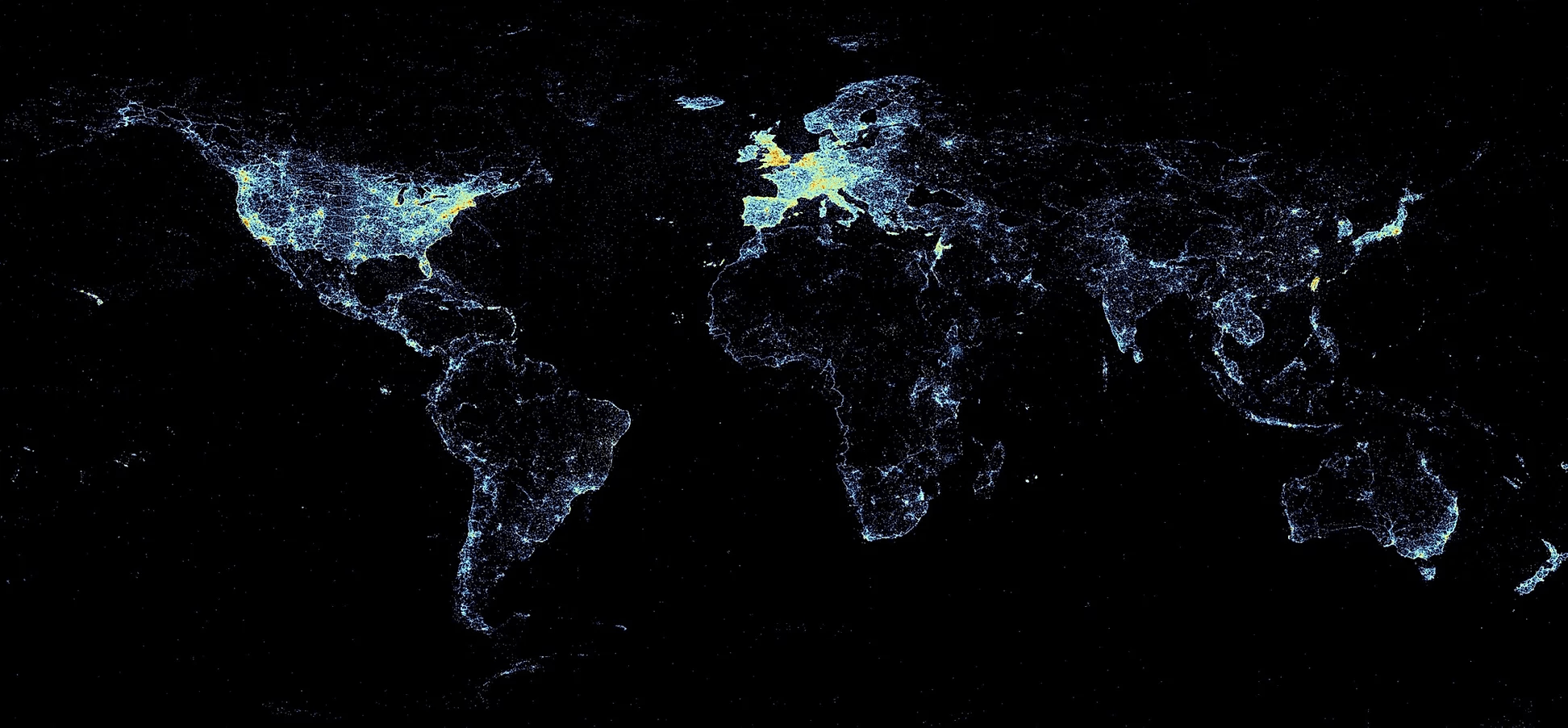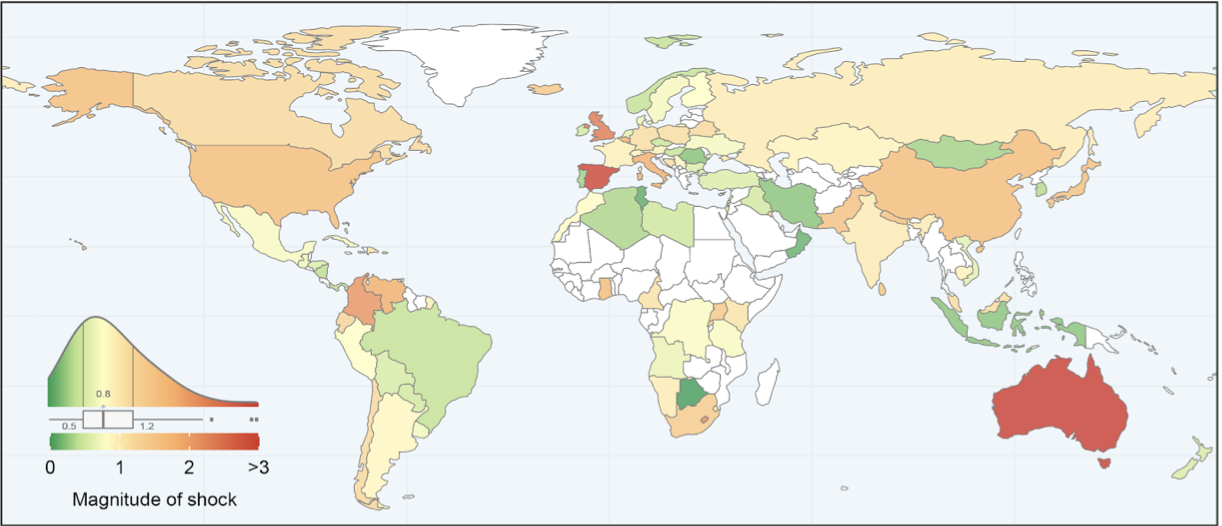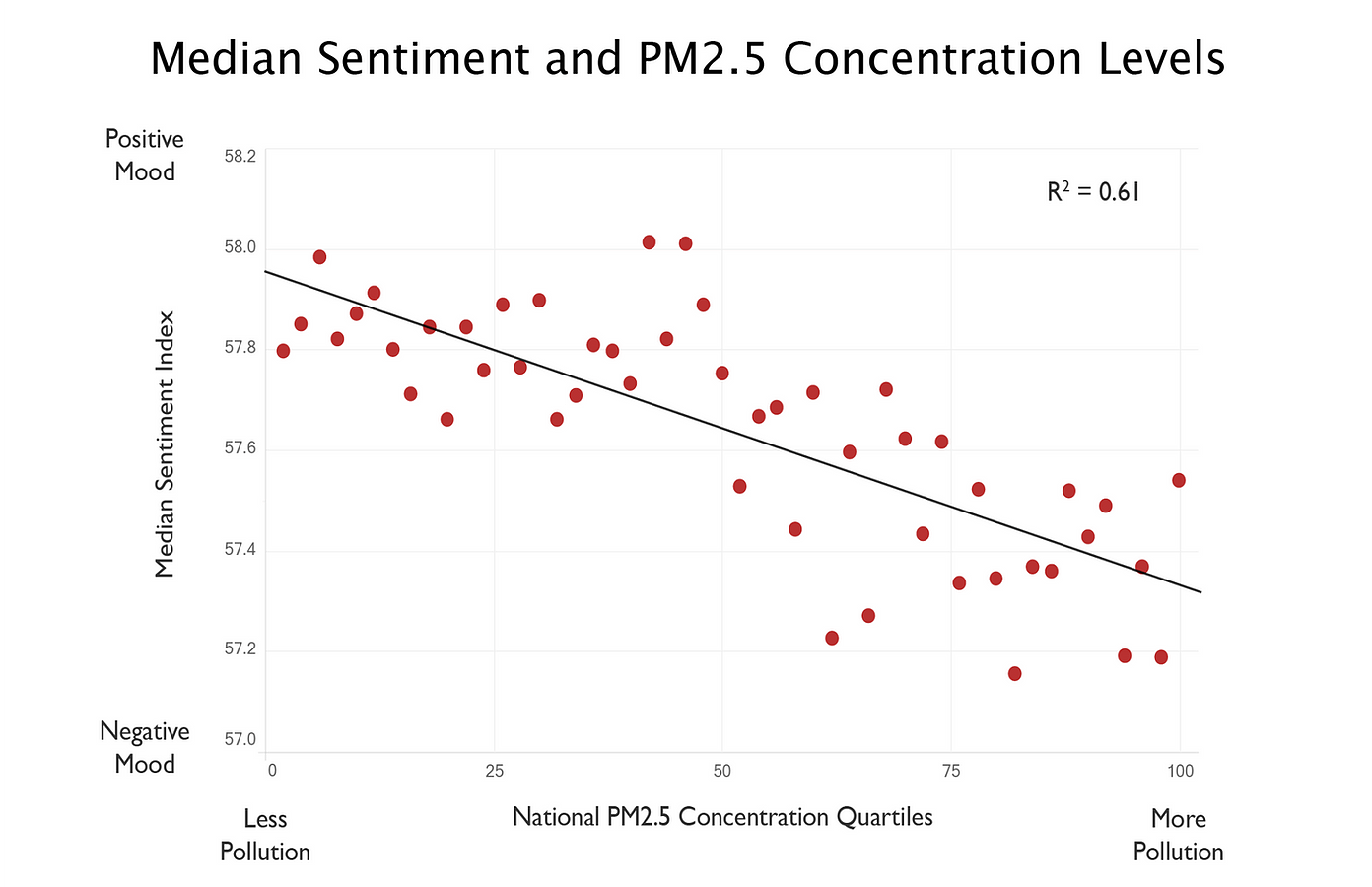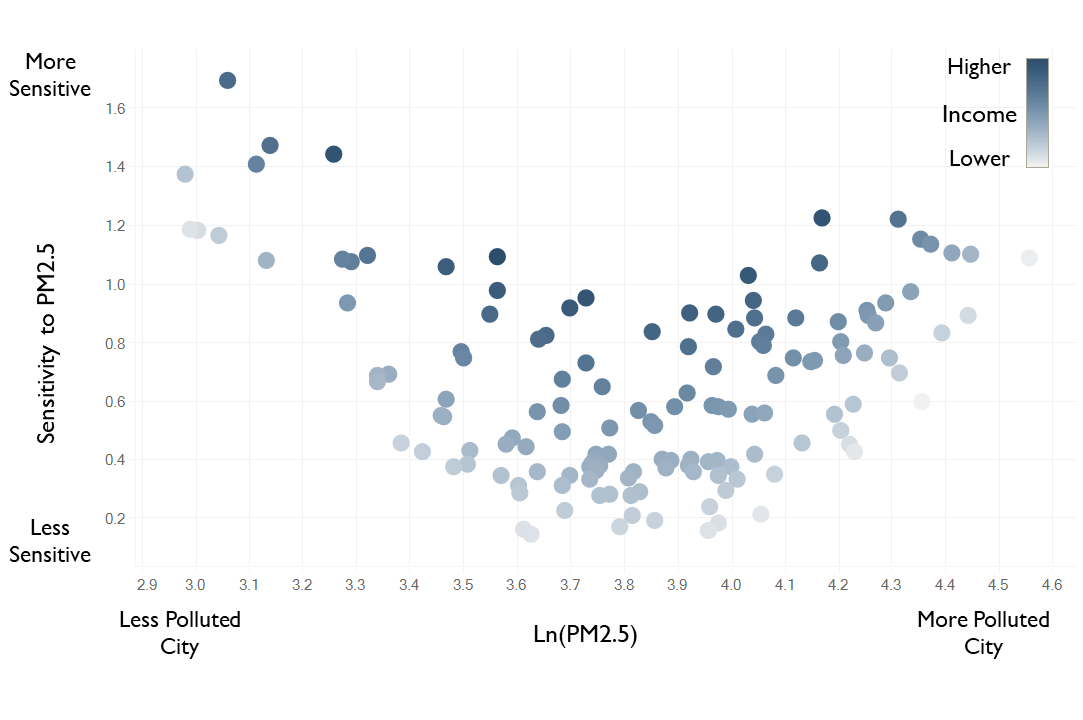
Global Sentiment
We use novel Natural Language Processing to extract Sentiment and Topics from Social Media
COVID-19
How did the spread of the COVID-19 pandemic affect well-being as measured on social media?
What is the impact of the pandemic on sentiment? We measure and model sentiment measured on social media from January to June 2020.
How mentally resilient were different countries during COVID-19? We quantify the magnitude of the sentiment shock, model the sentiment recovery dynamic, and examine global heterogeneities.
What was the impact of policy interventions? We evaluate the costs and benefits of different interventions, and the implications for future policy-making.
CLIMATE CHANGE
What is the emotional toll of climate change?
What is the effect of climate change and environmental disasters on subjective psychology? We consider the link between the effects of climate change and subjective well-being. Using social media, we create a global sentiment index which we match to historical climate and environmental data. Controlling for seasonality and news cycles, we are able to estimate the sentiment change due to warming temperatures, increased weather unpredictability, and more frequent environmental disasters.
How has belief in Climate Change evolved over time? We also study how Climate Change is discussed on social media: in particular, when do people acknowledge the reality of Climate Change and the importance to do something about it? Among the phenomena we examine are: (1) when Climate Change is discussed seriously vs. jokingly; (2) which subtopics are associated with serious Climate Change-related conversations; (3) based on sentiment and key terms, how impactful (likes, retweets) is Climate Change-related content. In addition to providing us with an evolution of the way Climate Change is discussed on social media, we can evaluate the most effective communication on the subject by comparing sentiment and reach to the key terms used in the tweet.
AIR POLLUTION
How does air pollution impact people emotionally and does this vary in different situations?
Our scientific results show that higher levels of pollution leads to a more negative mood. This response is about 3 times more sensitive when looking at Beijing, Guangzhou and Shanghai.
People's sensitivity to air pollution varies according to the days of the week, holidays, gender, cloud cover and temperature. A person's sensitivity to air pollution was found to be greater on weekends. Sensitivity to air pollution is about two times higher for women (vs. males) and on holidays (vs. non-holidays). Cloud cover and temperature also impacts a person's response to air pollution. When weather is not ideal, such as when there are more clouds in the sky or temperature is very high or very low, people tend to be more sensitive to higher air pollution levels.
Income and City Air Pollution. Looking at the 144 cities individually, we found that people from the cleanest and dirtiest cities were the most severely affected by pollution levels, as well as those with higher incomes.

Ou Method

Magnitude of sentiment shock due to COVID-19 worldwide, as measured by the BERT imputation method.

Air Pollution and Sentiment

Income and City Air Pollution
Publications
Wang, J., Obradovich, N., & Zheng, S. (2020). A 43-Million-Person Investigation into Weather and Expressed Sentiment in a Changing Climate. One Earth, 2(6), 568-577.
Zheng, S., Wang, J., Sun, C., Zhang, X., & Kahn, M. E. (2019). Air pollution lowers Chinese urbanites' expressed happiness on social media. Nature Human Behaviour, 3(3), 237.
Yan, L., Duarte, F., Wang, D., Zheng, S., & Ratti, C. (2019). Exploring the effect of air pollution on social activity in China using geotagged social media check-in data. Cities, 91, 116-125.